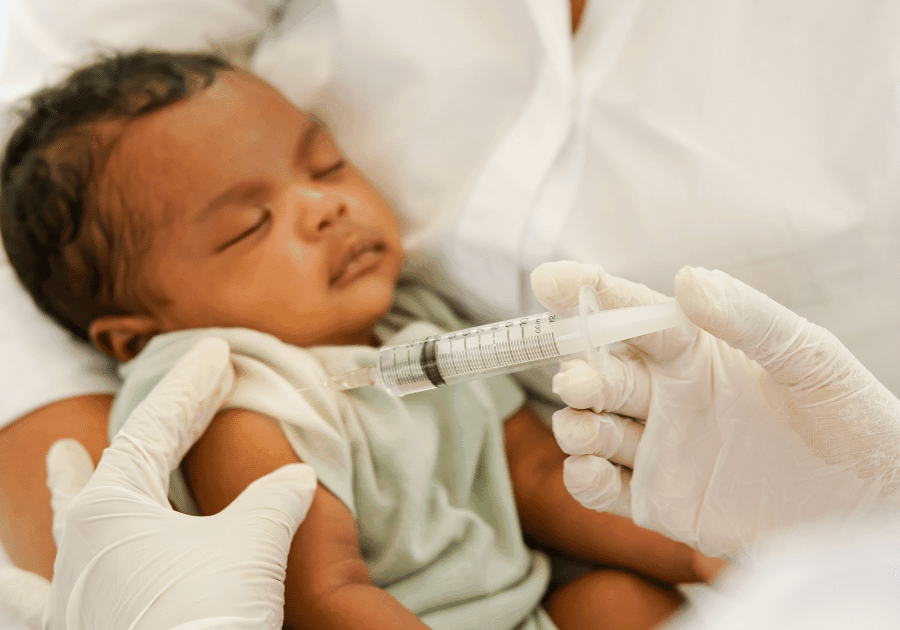With documented measles cases in our Washington, D.C. metropolitan area, our clients ask: how can I protect my baby? Can my newborn even receive a measles vaccine?
Even from early pregnancy, parenting is a steady stream of decisions about the health of our bodies and our babies. We all make these decisions using information we receive from our providers and our own beliefs and values, and we all want the best for our children. Vaccines are no different.
As a new parent, you might believe in the universal benefits of vaccines (and be well on your way along the recommended CDC schedule by age) or you may choose a modified schedule or no vaccines at all. Any of these choices is valid, as long as you are informed.
The CDC guidelines for the measles, mumps and rubella (MMR) vaccine indicate that the minimum age for first dose is 12 months. This is because the measles vaccine is less effective in newborns. However, if your baby is at risk – due to travel, local outbreak, or other reasons – you can discuss early vaccination with your pediatrician. Check your local or state health department for details about exposure risk in your community.
We understand postpartum parents who feel unsure about the benefits or risk factors. As postpartum doulas, we routinely witness the hesitation parents feel on practically every aspect of their child’s health and care. Part of our job is to offer evidence-based resources that can help answer parent questions without projecting our personal goals or choices. On the vaccine front, here is one such resource.
Reliable Source for Measles Vaccine Science
In an article titled, “Your Guide to Childhood Vaccines Before Age 2,” author Emily Oster walks us through all childhood vaccines, with brief and easy to follow descriptions of the conditions they target and how. For each vaccine, Oster covers the basics and provides some insight into how well it works. (Oster does not cover vaccines for COVID-19 and flu, by the way, but does redirect to another resource for interested readers.)
The article also offers a “101,” covering many questions we doulas have heard from parents. Starting with how vaccines work (by exposing us to an antigen – a virus or bacteria – which forces our bodies to make antibodies against the antigen without making us sick) to questions about their safety, side effects, and spacing, the author covers complicated medical ground in an uncomplicated way. A more detailed piece on safety can be found here.
This article has also received reader feedback, like most publicly available content online. Some readers appreciate Oster’s honesty and simplicity in unpacking the tricky terrain of vaccines. Others feel the piece needs more depth and would like to see more of the research. In either case, if you are looking for a quality overview as you hold your newborn in your arms, this might be a good place to start.
Keeping Your Newborn Safe
If your newborn cannot yet receive the measles vaccine, here are some other ways to keep your family safe:
- Limit your infant’s exposure to crowds or indoor areas.
- Wash your hands regularly, and as your baby learns to bring their hands to their mouths, wash their hands too!
- Disinfect household items and surfaces regularly.
- Talk to your pediatrician to help evaluate your child’s relative risk of infectious disease.
- Before traveling, check health departments for relevant advisories.

